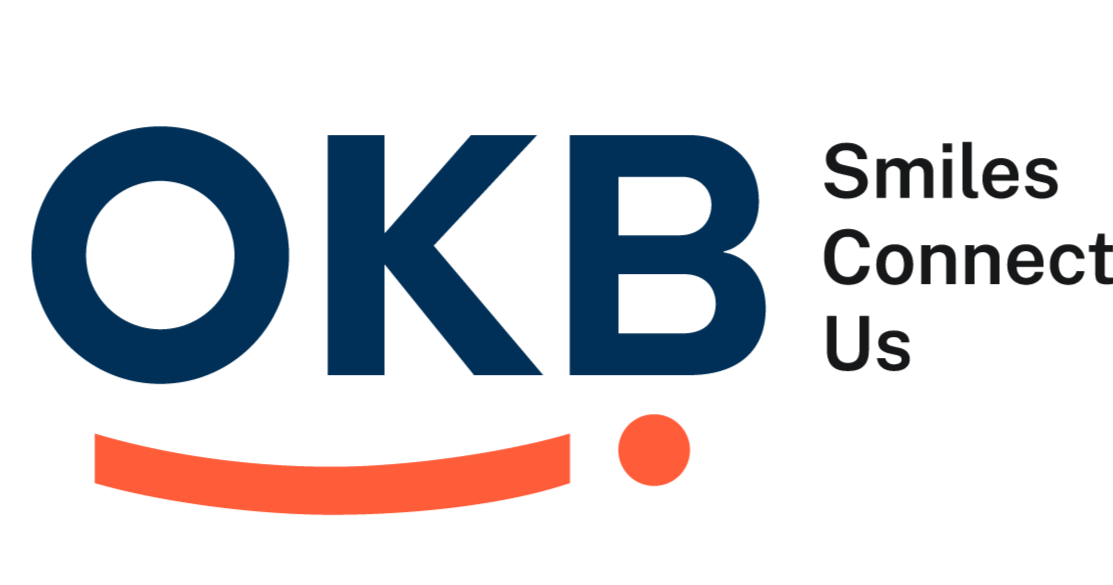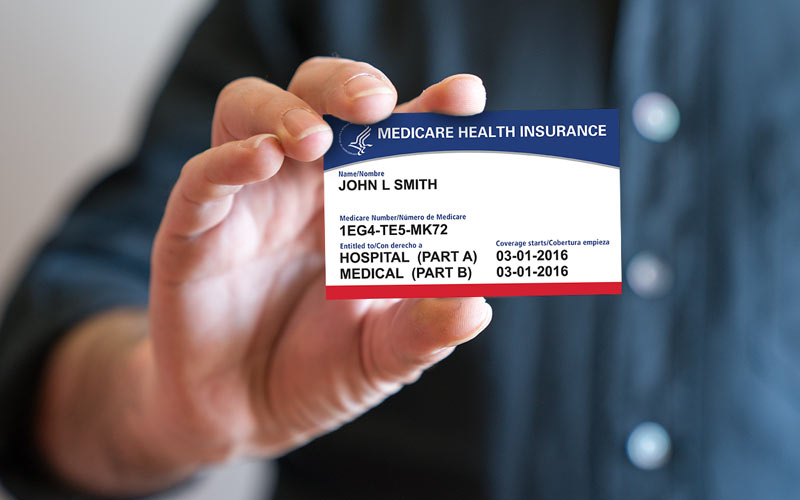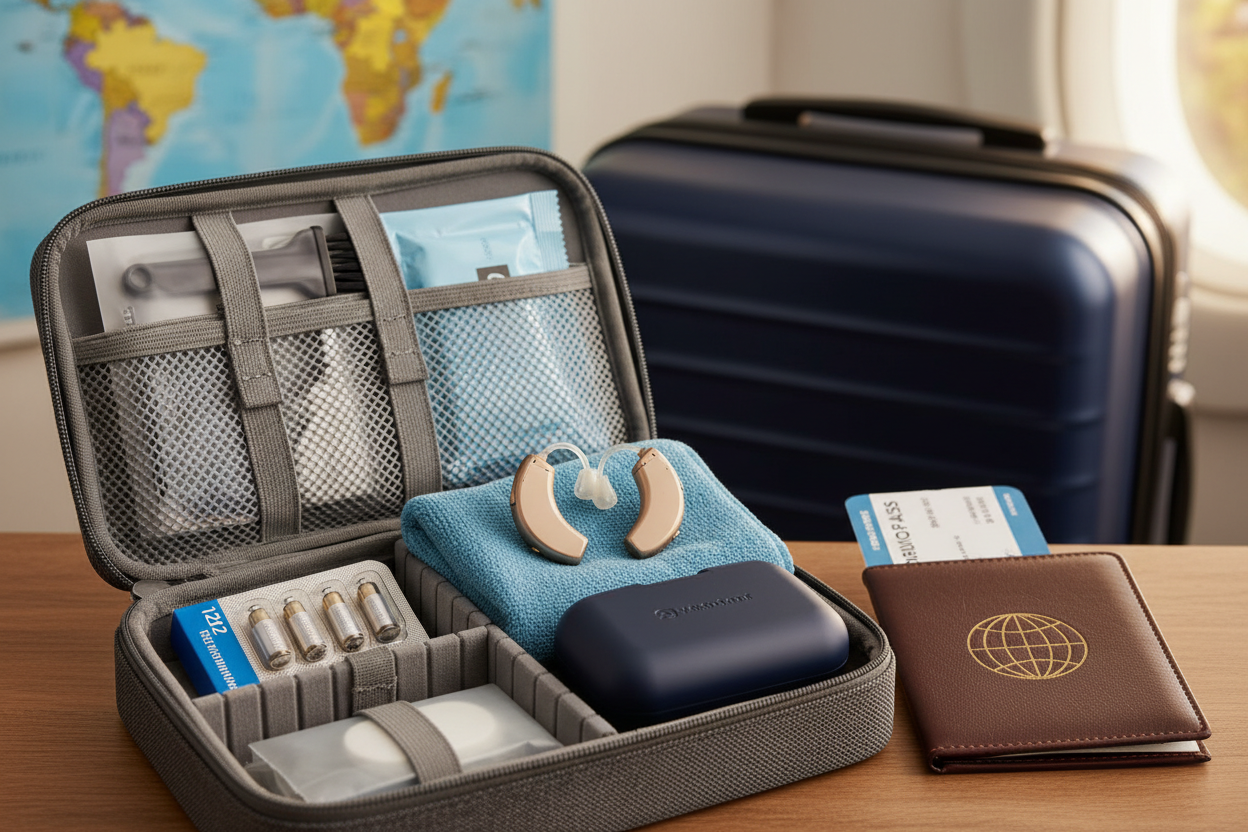If you’ve ever asked, “Does Medicare Part B cover hearing tests?” you’re not alone. Hearing loss affects nearly one-third of adults over 65, and knowing which hearing services are covered can help you plan care and manage costs wisely.
Medicare Part B — the part that covers outpatient services, doctor visits, and preventive exams — does pay for certain hearing-related tests. However, the rules can be confusing: diagnostic hearing tests are sometimes covered, while routine hearing screenings and hearing aids themselves usually are not.
This guide explains exactly what’s covered, what isn’t, how much you’ll pay, and what to ask your doctor or audiologist before scheduling a hearing evaluation.
Medicare Part B at a Glance
Medicare Part B helps pay for medically necessary outpatient care and some preventive services.
It generally covers:
-
Doctor visits
-
Specialist consultations
-
Diagnostic exams and imaging
-
Certain therapies and medical equipment
-
Outpatient hospital care
For hearing health, Part B only covers tests ordered by a physician or qualified provider to diagnose or treat a medical condition — not general hearing check-ups.
What Counts as a “Hearing Test” Under Medicare
Hearing tests come in two broad categories:
-
-
Ordered by a physician or qualified practitioner.
-
Used to identify or monitor a specific medical condition affecting hearing (such as ear infections, vertigo, tinnitus, or sudden hearing loss).
-
Performed by licensed audiologists or ENT specialists.
-
-
Routine Hearing Screenings
-
Conducted for wellness, annual check-ups, or curiosity about hearing ability.
-
Not linked to a suspected medical problem.
-
Typically offered in retail clinics or community health events.
-
Medicare Part B covers the first type — diagnostic hearing tests — when medically necessary.
It does not cover general or routine screenings that are purely preventive.
When Medicare Part B Covers Hearing Tests
Medicare Part B pays for a diagnostic hearing or balance test when:
-
Your primary-care physician or ENT orders the test to evaluate a symptom such as hearing loss, dizziness, ringing in the ears, or fluid in the ear.
-
The test is performed by a qualified audiologist or physician who accepts Medicare.
-
The provider documents medical necessity in your record.
Common covered scenarios include:
-
Sudden or progressive hearing loss
-
Frequent ear infections or fluid buildup
-
Tinnitus (ringing or buzzing sounds)
-
Dizziness or vertigo possibly related to inner-ear disorders
-
Follow-up after head trauma or surgery
-
Monitoring of long-term medication side effects (for drugs that may affect hearing)
If your provider believes the test is essential to diagnose or manage a medical issue, Medicare Part B typically covers 80 percent of the approved amount after you’ve met your annual deductible.
Costs and What You’ll Pay
Here’s how payment generally works under Medicare Part B for diagnostic hearing tests:
-
Medicare-approved amount: Medicare determines the standard fee for the service.
-
Part B deductible: You must first meet your yearly deductible (a set dollar amount).
-
Coinsurance: After that, Medicare pays 80 percent, and you pay 20 percent of the approved amount.
-
Provider participation: If your audiologist or ENT accepts Medicare assignment, you’ll only owe your 20 percent coinsurance and any unmet deductible. If not, you may owe more.
Example:
If Medicare approves $120 for a diagnostic hearing test and you’ve already met your deductible, Medicare pays $96, and you pay $24.
Additional charges can apply if:
-
The provider adds facility or equipment fees.
-
You haven’t yet met your annual Part B deductible.
-
The test includes procedures not covered (for example, a routine screening done at the same visit).
When Medicare Part B Does Not Cover Hearing Tests
Part B does not cover:
-
Routine hearing screenings (for check-ups or annual physicals).
-
Baseline or wellness hearing tests without medical necessity.
-
Hearing-aid fittings, consultations, or adjustments.
-
Hearing aids or accessories themselves (batteries, earmolds, chargers, maintenance).
These are considered “routine” or “comfort” services under Medicare policy.
If you’d like a general hearing check, you’ll typically pay the full cost out of pocket unless you have supplemental coverage or a Medicare Advantage plan that adds hearing benefits.
What About Balance Tests and Vestibular Exams?
Balance and vestibular testing — such as ENG (electronystagmography) or VNG (videonystagmography) — is often covered under Part B when medically necessary to investigate dizziness or vertigo.
These tests measure how your inner ear and eye movements work together. Because dizziness can stem from underlying medical disorders, these exams usually qualify as diagnostic rather than routine.
Audiologist and Provider Eligibility
Only certain professionals can bill Medicare for covered hearing tests:
-
Audiologists (with a doctorate or master’s in audiology, state license, and NPI).
-
ENT specialists (ear, nose, and throat physicians).
-
Primary-care doctors or neurologists who order diagnostic testing.
The key rule is that an ordering physician or qualified practitioner must determine the test is medically necessary.
Self-referrals — even if performed by a licensed audiologist — are not typically reimbursed by Medicare Part B.
Referral Requirements
To qualify for Part B coverage:
-
Your doctor or qualified provider must evaluate your symptoms and decide a hearing test is required.
-
The test must be diagnostic in purpose — to find or rule out a medical cause.
-
The provider or audiologist performing the test must participate in Medicare and accept assignment.
-
Proper documentation must accompany the claim.
If you walk into a clinic and request a hearing check on your own, it’s considered self-initiated and therefore not covered by Part B.
Understanding Preventive vs. Diagnostic Distinction
This is where many people get confused. The intent of the test determines coverage:
| Type of Exam | Purpose | Covered by Part B? |
|---|---|---|
| Diagnostic Hearing Test | Ordered to diagnose or treat a medical issue (hearing loss, tinnitus, dizziness) | ✅ Yes, if medically necessary |
| Routine Hearing Screening | Part of a check-up or wellness exam, no specific complaint | ❌ No |
| Hearing-Aid Evaluation | To fit or program hearing aids | ❌ No |
| Follow-Up after Ear Surgery or Illness | To monitor healing or medical treatment | ✅ Yes |
| Occupational or School Screening | For job/school requirement | ❌ No |
Always ask your provider to state medical necessity on your order. That single line can make the difference between coverage and denial.
Medicare Advantage (Part C) vs. Part B
While this article focuses on Part B, it’s helpful to understand how Medicare Advantage (private Part C plans) differs.
-
Part B = Original Medicare, standardized federal benefits, limited hearing coverage.
-
Part C (Medicare Advantage) = Private insurers combining Parts A and B and often adding extras like hearing exams and hearing-aid allowances.
So, while Part B itself does not pay for routine exams or devices, many Advantage plans do.
Always check your Evidence of Coverage (EOC) before scheduling a hearing test.
Additional Costs and Hidden Fees
When you schedule a Medicare-covered hearing test, clarify what’s included:
-
Facility fees: Hospital-based audiology clinics may charge additional fees.
-
Equipment charges: Specialized tests (e.g., otoacoustic emissions, tympanometry) may carry separate codes.
-
Consultation time: Physician interpretation may be billed separately.
-
Follow-up visits: New evaluations may require another referral.
Ask for an Advance Beneficiary Notice (ABN) if your provider suspects Medicare may deny a portion of the claim. This form lets you decide whether to proceed and pay out of pocket.
How to Verify Coverage Before Your Appointment
-
Contact your provider’s billing office. Ask if they accept Medicare assignment and which test codes they’ll use.
-
Call 1-800-MEDICARE or check your MyMedicare account for current coverage details.
-
Confirm diagnosis codes. Ensure your provider lists the symptom or condition being investigated.
-
Check deductibles and coinsurance. Even covered services can generate out-of-pocket costs.
-
Bring documentation. If referred by another doctor, carry the referral order to your appointment.
Common Misunderstandings
“Medicare covers annual hearing exams.”
False. Part B does not cover annual routine hearing screenings. Only diagnostic tests tied to a medical concern qualify.
“I can book a hearing test at a retail store and get reimbursed.”
Not under Part B. Medicare reimburses only services billed by participating providers who accept Medicare assignment.
“Hearing aids are covered once you prove you need them.”
Unfortunately, no. Hearing aids and fittings remain excluded under federal law for Original Medicare beneficiaries.
“I don’t need a referral if I already know I have hearing loss.”
Incorrect. Medicare requires a physician’s or qualified provider’s order for coverage. Self-referrals aren’t reimbursed.
The Role of Audiologists
Audiologists are licensed professionals trained to test, diagnose, and manage hearing and balance disorders.
For Medicare Part B, they can perform and bill for diagnostic hearing and balance tests only when ordered by a physician or qualified practitioner.
Many audiologists partner with referring physicians to streamline coverage verification. At OKB Hearing, for example, patients can bring their referral, have testing done, and receive detailed results to share with their primary doctor for next steps.
Preventive Hearing Health Tips Beyond Medicare
Even though Medicare doesn’t cover routine hearing screenings, maintaining ear health is still essential. Consider these habits:
-
Get baseline testing around age 50 – even if you pay out of pocket.
-
Protect ears from loud noises using earplugs or noise-canceling headphones.
-
Avoid inserting objects (including cotton swabs) into your ear canal.
-
Monitor medications known to affect hearing; discuss alternatives with your doctor.
-
Schedule periodic check-ups if you notice muffled hearing or ringing.
Early detection helps prevent communication challenges, cognitive strain, and social isolation later on.
What If You Need Hearing Aids?
If your diagnostic hearing test shows hearing loss, your audiologist may recommend hearing aids. Under Original Medicare Parts A and B, you’ll need to pay for:
-
The devices themselves
-
Fitting and programming
-
Repairs, supplies, and batteries
You may, however, find help through:
-
Medicare Advantage plans with supplemental hearing-aid benefits
-
Veterans Affairs (VA) programs for eligible veterans
-
Private insurance or employer retiree coverage
-
Hearing-aid assistance foundations or state programs
OKB Hearing can guide you through pricing, payment options, and available support programs.
How to Maximize Your Medicare Part B Benefits
-
Use participating providers. Always confirm your audiologist or ENT accepts Medicare assignment.
-
Get a clear physician referral. Make sure your order specifies a diagnostic purpose.
-
Schedule within the same calendar year. Deductibles reset annually.
-
Ask for itemized estimates. Know what’s covered and what’s not before your appointment.
-
Keep documentation. Save EOBs (Explanations of Benefits) for potential appeals or tax deductions.
Future Outlook for Medicare Hearing Coverage
There is ongoing discussion in Congress and among advocacy groups about expanding Medicare’s coverage of hearing care.
Proposals often include:
-
Adding routine hearing exams to preventive services
-
Offering partial reimbursement for hearing aids
-
Integrating OTC hearing aids under Part B or Part D allowances
While no final rule has passed yet, awareness of hearing health continues to grow, and incremental policy changes remain possible in coming years.
Key Takeaways
-
Medicare Part B covers diagnostic hearing and balance tests when ordered by a physician to evaluate a medical condition.
-
Routine hearing exams, fittings, and hearing aids are not covered under Original Medicare.
-
You’ll generally pay 20 percent coinsurance after meeting your Part B deductible.
-
To qualify for coverage, ensure your test is medically necessary, the provider accepts Medicare, and the claim is properly coded.
-
Medicare Advantage plans may offer broader hearing benefits — including routine exams and device allowances.
-
Even if not covered, routine hearing check-ups are vital for overall well-being.
Quick FAQ
Q: Does Medicare Part B pay for hearing tests every year?
A: No. It covers only diagnostic hearing or balance tests ordered by a doctor for a medical reason.
Q: What about hearing screenings at health fairs?
A: Those are preventive and not covered by Part B.
Q: Do I need a referral?
A: Yes. Medicare requires an order from a physician or qualified provider.
Q: Can I see any audiologist?
A: Only those who are Medicare-approved and accept assignment for diagnostic testing.
Q: How much will I pay out of pocket?
A: Typically 20 percent of the Medicare-approved amount plus any unmet deductible.
Q: Are hearing aids included?
A: No. Hearing aids and fittings remain excluded under Part B, though some Medicare Advantage plans include them.
So—does Medicare Part B cover hearing tests?
Yes, but only when they’re diagnostic and ordered by a doctor for a medical condition. Routine screenings and hearing aids are excluded. Understanding this distinction can save you hundreds of dollars and prevent claim denials.
If you’re unsure whether your test qualifies or how to coordinate coverage, OKB Hearing’s licensed audiologists can help you:
-
Review your Medicare Part B benefits
-
Obtain and document proper physician referrals
-
Estimate costs before testing
-
Choose the best care plan if hearing loss is confirmed
Better hearing begins with clarity—both in sound and in understanding your benefits.






分享:
Will Medicare Advantage Plans Cover OTC Hearing Aids in 2026?
7 Tips on How Hearing Aids Can Help You Gain Social Confidence